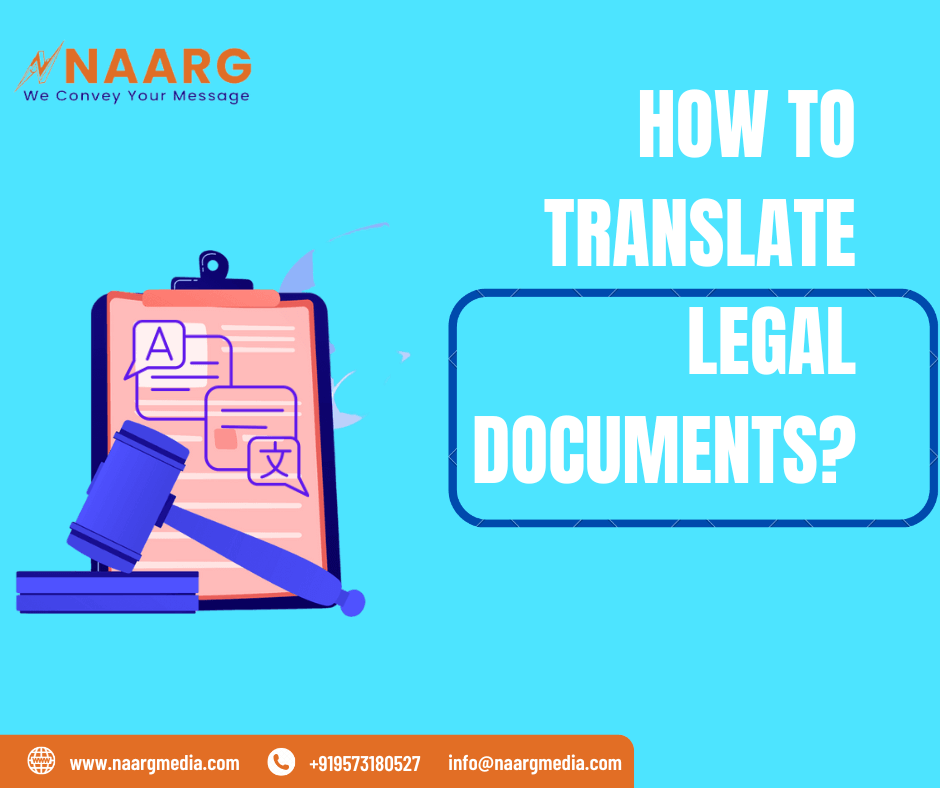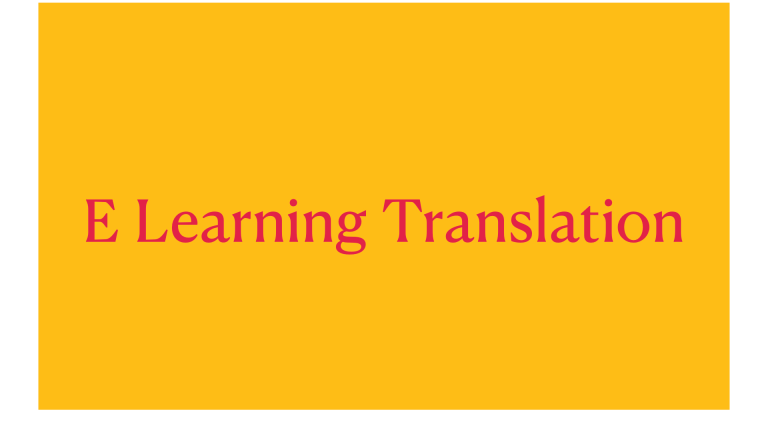Law is a part of the human world. They are made for us to live in peace. A fascinating thing about the law is that it changes from state to state and country to country. Due to this, legal documents require translation. Many of us struggle with the question of how to translate legal documents.
But first, let us understand: what are legal documents?
A legal document is any document in a legal system written by the nation’s governing rules. There is a wide range of legal documents. The most common ones are proxies, employment contracts, agreements, testaments, affidavits, agreements, birth certificates, marriage certificates, etc. Also Did you know that the legal translation field is projected to grow at the highest of CAGR of 2.33%.
To get the complete essence of the topic, let us explore what the rest of the article has to say to us.

What is legal document translation?
Legal document translation is the process of transforming legal documents from the source language to the target language while carrying the context of the source text. Law firms need to ensure that the translated outcome is accurate and true to the original.
And thus, it should be done by a person who is an expert in this specific domain. Head over to our blog post to understand the importance of legal translation- ‘What is a legal translation and why it is important?’
You may be wondering whether we need to translate the legal documents because the terms and conditions are quite serious. Can’t we make our lives simple by avoiding document translation? Well, the answer is no.
If you are relocating to another country for work or studying, you will need to translate legal documents. Original document translation is also necessary when establishing or transferring company offices to another nation to ensure their legal functioning.
In other words, translation of the relevant type of legal documents is necessary for every legal transaction taking place in another nation.
How to translate legal documents: 7 best tips
Following are some best practices for the translation of official and legal documents.
1. Accuracy
Accurate translation is a must in legal content translation. The slightest inaccuracy in a legal document might lead to a lawsuit or other legal issues. Any organization or individual cannot afford to compromise on the accuracy and quality of their translations. A single error can damage their reputation, leading to heavy financial losses.
2. Terminology
Nobody would be shocked to find that legal papers frequently include technical vocabulary and legal jargon. Translators must be familiar with the terminology concerning the nation’s rules mentioned in the document. For the best results, Naarg collaborates with native language speakers. We have the best outcomes when we work with native linguists since they are very familiar with the regional market.
3. Consistency
Maintaining consistency of terminology is another important aspect. Having varied translations for the same source term at different locations in one translated text creates ambiguity and makes it appear unprofessional.
4. Choosing the style of translation
For legal documents translation, one needs to choose standard translation following local jurisdiction terminology and need to translate without modifying source content. Linguists need to do the necessary research and ensure appropriate terms and style is implemented while translating content. Some efficient ways are creating a glossary, using translation memory, and proofreading.
5. Revision and quality check
Like any other domain editing and quality checking are steps that cannot be ignored especially for legal copies as lives could be at stake. Editing and quality check are steps done by different translators who did the translation.
Standard translation includes TEP(Translation+ editing+ Proofreading) and each step is done by a different translator. Getting each step done is crucial to get maximum quality. It is because legal translation mistakes are expensive.
They may result in exorbitant penalties, significant delays in the legal process, or costly legal battles. A document’s whole meaning can be changed by a single mistranslated word, rendering it invalid.
6. Professional translation support
Few assume that one who knows the target language can do translation, but that’s not the case. Stakes are high in any case when you deal with legal aspects as they are time-consuming. It is advisable to entrust your translation with reliable translation agencies. Make sure that you are working with the right company by checking below aspects:
- How qualified are their linguists?
- What is their linguist vetting process?
- What are the steps they follow?
- Are they using machine translation support?
- How much data security do they maintain?
7. Never rush the translations
Always make sure to approach a legal translation service well in time. Due to strict deadlines, your translator might be under a lot of pressure while performing legal document translation. If you hire a professional legal translator at the last minute, the linguist will have to rush the translation, lowering the quality of the work. As a result, the translation would be incorrect.
Who can translate legal documents?
Legal translations are often carried out by expert linguists who have taken courses in legal aspects, and who did a Diploma or Degree in linguistics. These experts, have excellent attention to detail and are highly precise which makes them the best fit for legal document translation.
It is always preferable to reach out to a translation agency. It is because a translation company will cater to your needs in the best possible way by providing you with an experienced and expert linguist. I believe you got an idea about how to get legal documents translated.
Naarg is a leader in the legal document translation industry giving clients exactly what they need – an accurate and professional legal translation delivered within time. With years of experience we can say that.
Every translator cannot handle all domains. Based on the niche, Project management at Naarg onboards linguists with specific skill sets who have expertise in the legal domain and ensure output is as per industry standards. Take a look at Naarg’s requirement criteria for hiring ideal legal translators:
- Translators need to understand the nuance of legal content and contextually translate them into the target language.
- Concerned linguist needs to have knowledge of legal content and should be native language speaker of the target language.
- Proficiency in the source language
- Diploma or degree in translation studies.
We have earned uncountable compliments on our professional legal translation services and we never settle for less than 100% customer satisfaction. We work on content to keep the end user point so that the user of our client is satisfied.
How much does it cost to translate legal documents?
Legal translation is a challenging field that calls for expertise, in-depth knowledge, and meticulous attention to detail. Therefore, they are more expensive than regular translations.
Usually, the cost of a legal translation service is calculated at an hourly rate, a flat fee (per page), or a per-word charge (according to the page number or word count of the original document). You should with a firm about its service guarantee policies, regardless of the technique they employ to calculate service costs. The following prices are what you may expect to pay:
- $20 to $100 per hour
- $0.07 to $0.35 per word
- $25 to $125 per page charge
Depending on the difficulty of the target language (Chinese vs. Spanish), the kind of document (diploma vs. legal contract), the length of the document, the turnaround time, etc., you may have to pay higher fees. For editorial services, there can be extra charges. They are not usually covered in the translation fee. Always make sure to enquire about these from the firm.
If you need help overcoming the challenges of legal document translation, connect with Naarg, as we are a translation agency that works with 150+ languages with our most experienced native translators. We are conveying our client’s messages contextually and making our client’s processes as simple as possible. At Naarg, we ensure that your data gets relayed accurately.
Looking for the most suitable legal document translation services, get in touch with our team at info@naargmedia.com to learn more about our services.

